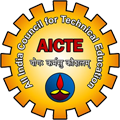
The aviation industry, known for its dynamic growth and global allure, captivates the aspirations of many young individuals. It is a major catalyst for job creation, a driving force in the travel and tourism sector, and an important contributor to the global economy. What adds to its allure is the unique opportunity it offers to launch one's career early, paving the way for a swift ascent to success.
Before taking the plunge into aviation courses, let's explore the important things that you need to know before opting for any aviation course
Eligibility Requirements
Most aviation courses require candidates to have completed their 10+2 examinations from a recognized board in any stream
Aspiring Air Hostesses
For young women aspiring to become air hostesses, the ideal age range is between 18 and 26 years. While factors like skin complexion and height play a minimal role, maintaining proportionate body weight to height is crucial. Exceptional communication skills, a friendly disposition, and high levels of activity and confidence are also prerequisites.
Entrance Examinations
While many aviation colleges select candidates based on merit, some institutions make clearing entrance examinations mandatory. For instance, a BBA in Aviation Operations may require exams like NPAT, CET, or SET, while an MBA in Aviation Management might necessitate GMAT, CAT, or CMAT scores. A diploma in Aviation Hospitality and Aviation Management could require NCHMCT, JEE, or AEE exams.
MBA in Aviation Management
Candidates aiming for an MBA in Aviation Management should have completed their undergraduate degree from a recognized university with a minimum aggregate of 50%.
Specialized Aviation Courses
For specific courses like Commercial Pilot Training and Aeronautical Engineering, candidates must clear their 10+2 examinations with a Science stream (including Physics, Chemistry, and Mathematics) and achieve an aggregate of 50%.
Aspiring commercial pilots may need to pass a written exam, a pilot aptitude test, and an interview. Aeronautical Engineering candidates may be required to clear entrance examinations like JEE Advanced, JEE Main, and NATA, among others.
Key Skills:
To thrive in the aviation industry, candidates should possess excellent written and oral communication skills. Additionally, qualities such as politeness, friendliness, leadership, problem-solving ability, flexibility, and time management skills are invaluable.
Clear Career Goals
Understanding your career aspirations within the aviation industry is crucial. Whether you are passionate about flying and aspire to become a pilot or an air hostess or have an interest in, air traffic control, or aircraft maintenance, having a clear career goal will guide you in choosing the right aviation course and specialization.
Course Accreditation
Ensure that the aviation course you are interested in is accredited by the appropriate aviation authority in your country. Accreditation ensures that the program meets industry standards and provides quality education.
Financial Planning
Given the potential costs associated with aviation courses, having a solid financial plan is essential. Consider tuition fees, flight training costs (if applicable), and living expenses, and explore all possible funding options, including education loans or scholarships.
Entry Requirements
Different aviation courses may have specific entry requirements, including academic qualifications, age restrictions, and medical fitness standards. Ensure you meet these requirements before applying for the program.
Time Commitment
Aviation courses can be demanding in terms of time, particularly for flight training. Consider how the course schedule aligns with other commitments, such as work or family responsibilities.
Job Market and Demand
Research the job market for your chosen aviation career. Understand the demand for roles, such as commercial pilots or aircraft maintenance technicians, and how it may fluctuate based on economic conditions.
Safety and Health Standards
Safety is paramount in aviation. Ensure you are physically and mentally fit by undergoing necessary medical examinations and being aware of any health conditions that may affect your eligibility for specific roles.
Networking and Internship Opportunities
Given the highly specialized nature of aviation, look for programs that offer opportunities for internships, co-op experiences, or industry connections. Building a strong professional network can open doors to job opportunities and mentorship.
Personal Commitment and Passion
Pursuing an aviation career requires dedication and a genuine passion for the industry. It demands continuous learning and adherence to safety protocols. Ensure you are truly committed to your chosen path.
The best aviation college in Kolkata offers a diverse range of professional courses tailored to empower aspiring candidates. These include a Diploma in Aviation Hospitality and Aviation Management, a BBA in Aviation Operations, a Diploma in Ground Staff and Cabin Crew Training, an MBA in Aviation Management, and a variety of International Air Transport Association (IATA) authorized courses. These offerings are crafted to enable individuals to spread their wings and embark on a prosperous journey in the global aviation sector.
Choosing an aviation course is a significant decision that necessitates careful planning. By understanding your career goals, researching your options, and evaluating the practical aspects of aviation education, you can set out on a successful and fulfilling journey in the world of the aviation industry.
 CCPTR,
CCPTR, 

 National Skill Development Corporation
National Skill Development Corporation Ministry of Education
Ministry of Education MoE's Innovation Cell
MoE's Innovation Cell Institution’s Innovation Council
Institution’s Innovation Council AICTE
AICTE


Leave a comment